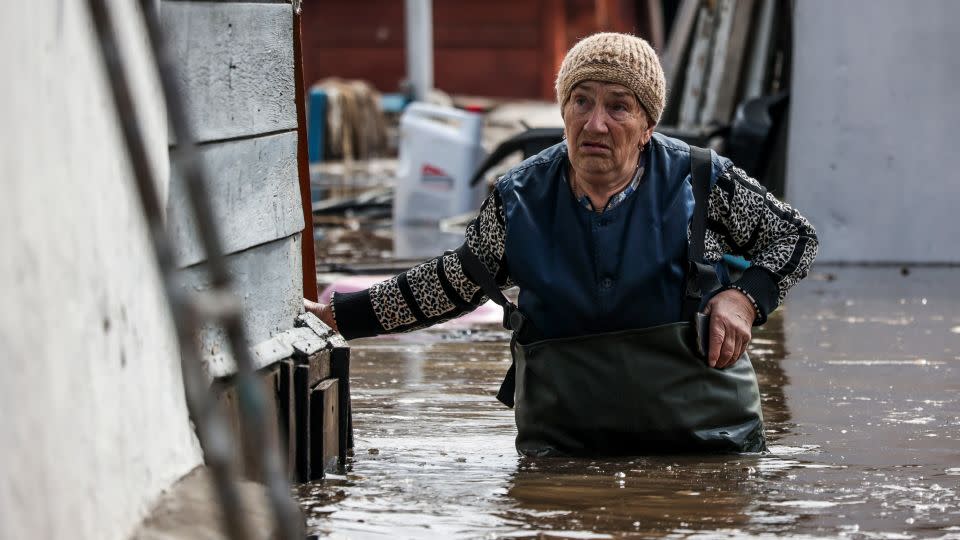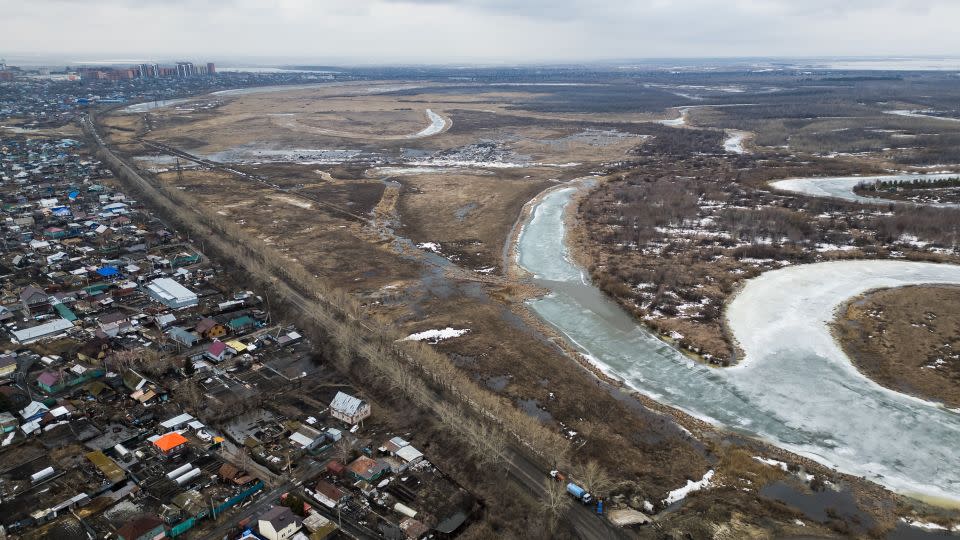Floods ravage regions of Russia and Kazakhstan, but worse is yet to come
Floods have swamped parts of Russia and Kazakhstan after Europe’s third-longest river burst its banks, forcing more than 100,000 people to evacuate and sparking protests against the authorities.
The Ural River, which flows from Russia’s Ural Mountains through Kazakhstan to the Caspian Sea, was swelled this week by snow melt, causing a deluge in dozens of towns and cities along the border.
Kazakhstan’s President Kassym-Jomart Tokayev said the flooding “might be the biggest disaster in terms of its scale and impact in more than 80 years.”
In Russia’s Orenburg region, nearly 13,000 residential buildings were flooded, forcing more than 7,700 people to be evacuated, the local government said Wednesday. Water levels in Orenburg city reached 996 centimeters (around 33 feet), according to the mayor – far exceeding the official critical level of 930 centimeters.
“The forecast is unfavorable. The water level continues to rise in flood-affected areas,” Kremlin spokesman Dmitry Peskov told reporters Wednesday.
The Kremlin said that Russian President Vladimir Putin would on Wednesday receive reports from the governors of the three seriously affected regions: Orenburg, Kurgan and Tyumen. The governor of Kurgan warned the region was expecting a large influx of water from Thursday to Sunday.

Despite the crisis, Putin has no plans to visit the flooded regions, Peskov said, because local officials were carrying out “intense work” and “the population is being provided with all the necessary assistance.”
“Although he is not physically there, he is constantly present on this topic. He constantly deals with these issues throughout the day,” Peskov said.
Residents have repeatedly called on the president for assistance. Video posts on social media showed hundreds of protesters gathering outside the city hall in Orsk, Orenburg, chanting “Shame! Shame!” and “Putin, help!” Other footage showed demonstrators accusing the state of “doing nothing” and criticizing the city’s mayor, Vasily Kozupitsa.
“We feed emergency ministry workers with pies and dumplings and bring them thermoses… Kozupitsa cannot even provide for emergency workers. Shame!” one woman could be heard saying.
Yulia Navalnaya, the widow of the late Russian opposition leader Alexey Navalny, also criticized the Kremlin.
“The authorities in our country never seem to be prepared for anything. In winter, they are unprepared for frost and snowstorms, in summer - for fires, and in spring - for floods,” she wrote Tuesday on X.

In a thread, Navalnaya also shared Telegram videos showing local officials responding unsympathetically to affected residents. In one video, Orenburg governor Denis Pasler tells a news conference he should be on vacation rather than responding to the floods. In another, he tells the public to put away their phones and not record his comments.
“It’s like in the Soviet Union: if a catastrophe occurs, first, it must be covered up,” Navalnaya added.
In another video, Russia’s Emergency Situations Minister Aleksandr Kurenkov claims that the evacuation was “announced a week ago” and that the public “chose not to leave” because they thought it was a “joke.” But, in an interview with a local news outlet, a resident of Orsk said: “This is nonsense. There was no warning.”
South of the border, more than 96,000 people have been evacuated in Kazakhstan, the government said in a statement. Nearly 3,000 people were airlifted from flood-hit regions and more than 7,600 are staying in temporary accommodation, according to Yerassyl Saipash, a senior officer at the Kazakh Emergencies Ministry.
More than 8.5 million tons of meltwater has been pumped away, Kazakh state media Kazinform reported Wednesday.
Putin and his Kazakh counterpart spoke about the situation on Wednesday, the Kremlin said.
For more CNN news and newsletters create an account at CNN.com


